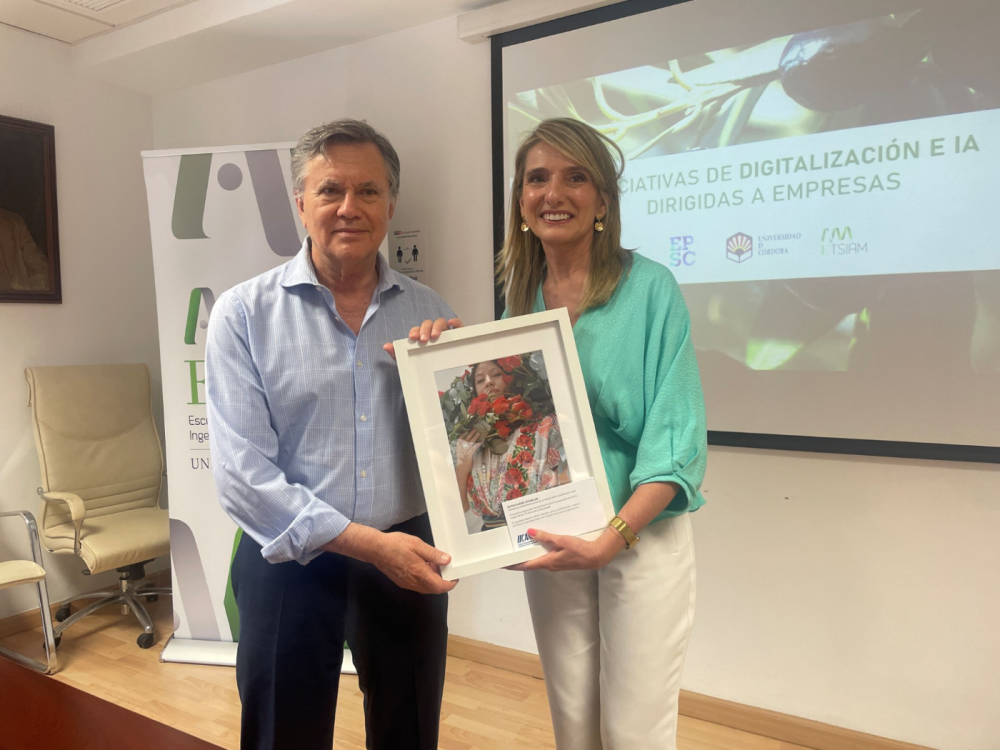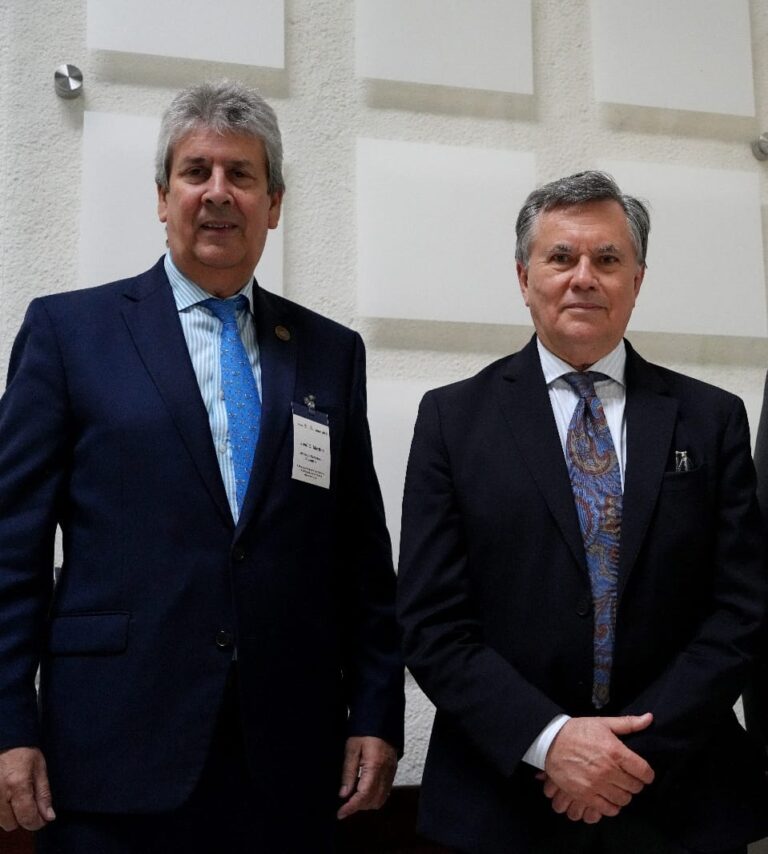The IICA Director General’s visit to the university facilities is part of an official mission to strengthen the Institute’s links with its Spanish counterparts in the areas of innovation and international cooperation focused on Latin America and the Caribbean.

Córdoba, Spain, 14 June 2024 (IICA). At the Rabanales campus of the University of Córdoba, Spain, where students of the Digital Transformation of the Agrifood and Forestry Sector (Digital Agri) master’s program perform their field work, the Director General of the Inter-American Institute for Cooperation on Agriculture (IICA), Manuel Otero, shared with the faculty and Latin American students his vision of how the incorporation of digital technologies into agrifood systems can strengthen food, nutrition and energy security using fewer natural resources.
The IICA Director General’s visit to the university facilities is part of an official mission to strengthen the Institute’s links with its Spanish counterparts in the areas of innovation and international cooperation focused on Latin America and the Caribbean.
“This region is a key player in global food security and sustainability. Latin America and the Caribbean have an enormous responsibility and the tools at their disposal are science and innovation, always in harmony with nature and hand in hand with sustainable energies,” said Otero during the field visit, in which he spoke with the four Latin American students currently taking the Digital Agri course with tuition scholarships from IICA. The students are Caterina Dalmasso from Argentina, Víctor González from Panama, and Derian Palma and Marianne Salas from Costa Rica.
At the experimental farm on the Rabanales campus, specialists from the Higher Technical School of Agronomy and Forestry (ETSIAM) of the University of Córdoba, under whose auspices the master’s program operates, showed the uses that digital technologies such as sensors, cameras and other high-precision applications can have in today’s agriculture. In the auditorium, Otero spoke with students and faculty about how young people are agents of change tasked with making the digital transformation of agriculture a reality.
A number of senior university officials accompanied the IICA Director General during that session, including María del Carmen del Campillo, Director of ETSIAM; Rosa Gallardo, outgoing Director and the current holder of ETSIAM’s International Chair of Artificial Intelligence and Agriculture; Adolfo Peña, Director of the Datagri Chair; and José Emilio Guerrero, Professor Emeritus. Costa Rica’s Ambassador to Spain, Adriana Bolaños, also took part in the meeting.
This is the fourth consecutive year that IICA has awarded tuition scholarships for the master’s program to students from Latin America. The registration period is currently open for the next selection process for young professionals from this region, who will be chosen by IICA and the University of Córdoba. The schedule and detailed instructions can be found at https://agriculturadigital.iica.int/.
“This master’s program has grown thanks to the contribution and collaboration of these students from Latin America. A partnership that began four years ago is now well established and much more is yet to come,” Gallardo observed.
The students thanked IICA and the faculty of the University of Córdoba for their support, and spoke about their experience, challenges and next steps upon completing their master’s degree.

“I’ll never be the same again. This experience has been lifechanging for me, on a personal, academic and professional level. I feel duty bound to capitalize on what I’ve learned and return to my country to improve and contribute to it with all the knowledge and tools I’ve acquired,” commented Marianne Salas, a Costa Rican agronomist who highlighted the multidisciplinary training and innovative approach of the master’s program.
Víctor González, an agronomist specializing in tropical crops at the University of Panama, where he works, said he viewed the master’s program as an opportunity to update areas of study and contribute to his local area where many more specialists and experts in new technologies applied to agriculture are needed.
Derian Palma, a mechatronics graduate from Costa Rica, remarked: “There’s an effective network of collaboration with public and private sector entities in this master’s program, which allows us to get involved from the very first moment with real experiences and companies where we can do internships and our final master’s work.”
Finally, Caterina Dalmasso, an Argentine sociologist, said that for her the experience had been lifechanging. Caterina is doing her virtual internship with IICA’s Agrifood Digitalization program, working as a virtual assistant to support rural development groups.
The visit to Rabanales concluded with the presentation of ETSIAM’s digitalization initiatives and the design of a collaboration agenda in this area for IICA and the University of Córdoba.
The first day of the IICA Director General’s official visit to Spain included participation in the inauguration of the MundOlivar Congress, which brings together the main national and international players in the country’s olive oil industry.
For this visit, the Institute’s delegation is composed of Manuel Otero, Director General; Diego Montenegro, Representative in Mexico; and Emmanuel Picado, Manager of Information and Digital Communication Technologies.
The tour will also include a high-level meeting between Otero and the five deans of the Andalusian universities, as well as the strengthening of alliances with strategic partners such as the Campus of International Agri-Food Excellence (CeiA3) and the Network for the Management of Innovation in the Agrifood Sector (INNOVAGRO Network), with which IICA will be renewing its collaboration agreement.
More information:
Institutional Communication Division.
comunicacion.institucional@iica.int











